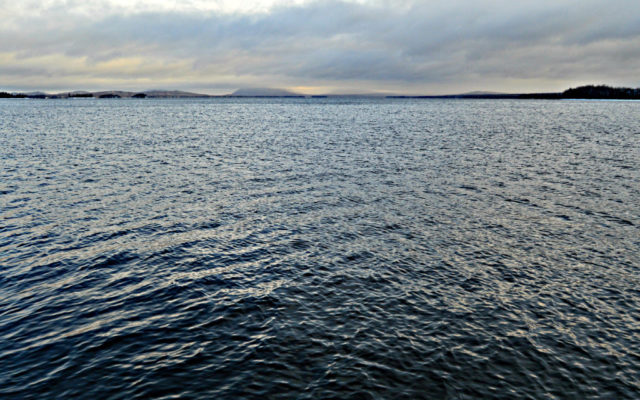
Winter update on Moosehead Lake
By Moosehead Lake Region Regional Fisheries Supervisor Tim Obrey
Well, to quote from Maine’s most prominent philosophers (also known as “Bert and Iâ€), last winter was just “one big fizzle after another.†Poor ice conditions prevailed throughout the winter over the northern areas of Moosehead Lake. The lake was slow to freeze then showed signs of thinning in early March, which resulted in low angler use on the big lake.
The good news is that lower fishing pressure results in lower harvest for our brook trout and salmon fisheries. Reduced harvest and better survival through the winter should result in larger fish this spring. We’ve already seen some handsome fish caught in May.
The not-so-good news is that we need to harvest sufficient numbers of smaller lake trout to maintain the forage in the lake. Based on years of creel surveys and harvest estimates, we need to remove around 3,000 to 4,000 lake trout under 18 inches each winter to maintain our forage base (smelt). The lack of ice this winter hurt that effort. We estimated around 1,800 smaller lake trout were harvested through the ice.
We have a 5-fish limit on lake trout under 18 inches, and we encourage anglers to take these fish home. Unfortunately, anglers are voluntarily releasing many of these fish. In the winter of 2024, we estimated that anglers released 70 percent of the smaller lake trout that they caught. During the “Great Purgeâ€, when we had a no size or bag limit on smaller lake trout, the release rates were in the 10-30 percent range. The result is the good fishing we have been enjoying. Lake trout, salmon, and those monster brook trout all benefited from thinning the overly abundant lake trout population. We need anglers to continue to harvest these lake trout under 18 inches.Â
So, if you’re out and about on Moosehead Lake this summer or next winter, please consider harvesting a few more lake trout. The Moosehead Lake Fisheries Coalition has a great cookbook for lake trout (https://mooseheadlakecoalition.org/mlfc-lake-trout-cookbook/). Try some new recipes like Lily Bay Lobster! Maybe you have some friends or neighbors that can’t get out and fish as much as they used to. Perhaps they would appreciate a few fresh fish. You can also check with your local food pantry. They often take donations of wild game and may be interested in passing along some of your catch if it is properly prepared. Let’s work together to keep this fishery on Maine’s largest lake in tip-top shape!